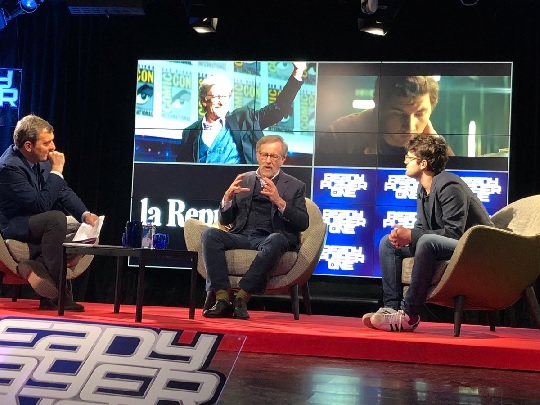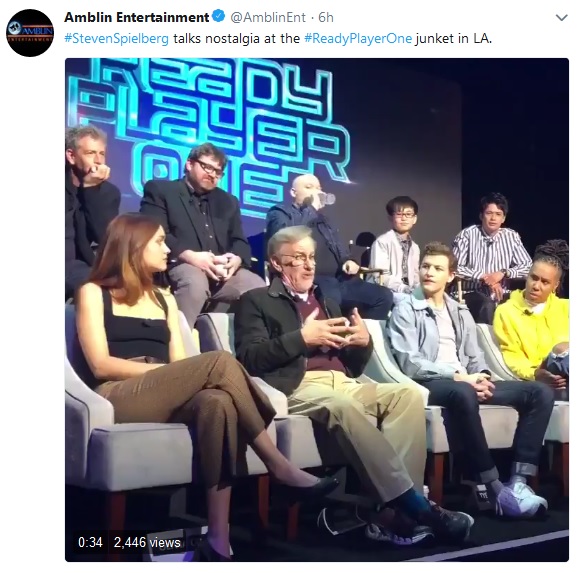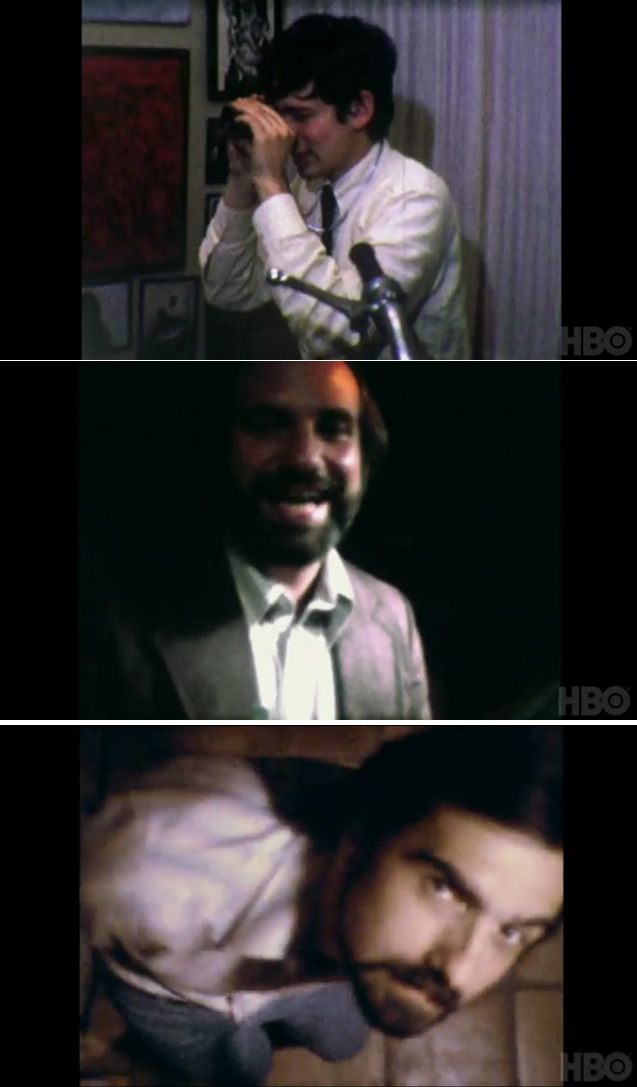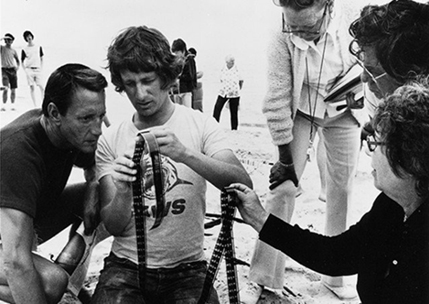INCLUDING "A RECOGNIZABLE BRIAN DE PALMA TECHNIQUE," SAYS ODIE HENDERSON @ BOSTON GLOBE

Boston Globe film critic Odie Henderson reviews Steven Spielberg's The Fabelmans:
Fast forward 10 years, and Sam (now played by an excellent Gabriel LaBelle) is inspired to make a Western after seeing John Ford’s “The Man Who Shot Liberty Valance.” The Fabelmans have moved to a neighborhood in Arizona that looks ripped out of “Poltergeist,” the 1982 film Spielberg co-wrote. His group of friends/co-conspirators enters the frame on bicycles, reminding us of “E.T.” The wistful score by John Williams — one of his best — makes a lovely complement to the visuals by Janusz Kaminski.But all is not hearts and flowers. Anyone familiar with Spielberg’s work knows of his penchant for exploring divorced families. The director’s own parents split, but the screenplay by Spielberg and Tony Kushner provides a deeper reason for his consistent return to that subject. Mitzi describes her young son’s desire to restage DeMille as a way to control a chaotic situation. The camera makes Sammy Fabelman the ringmaster in his own Greatest Show on Earth.
Sammy also has to deal with several instances of antisemitism in his high school. That subplot is harrowing, but not without humor, albeit of the gallows variety. Sammy’s “revenge,” such as it is, plays as a complex and fascinating delve into the mind of a future filmmaker’s philosophy about the images he creates.
This is Spielberg’s most personal film, and it’s intriguing to watch him pay homage to the directors who made up his group of friends in the early 1970s. There’s more than a bit of George Lucas in the film’s later, California-set high school scenes. The comic, religious guilt that pours out of Sammy’s Christian girlfriend, who prays to an enormous crucifix on her wall before jumping his bones, has all the mischief of Marty Scorsese.
A fantastic, extended cameo by Judd Hirsch as the bonkers Uncle Boris, a man who once worked in the circus, features some advice that sounds scripted by Francis Ford Coppola. “Art is not a game,” he scolds. “Art is like putting your hand in the lion’s mouth.”
Spielberg saves his biggest directorial nod to a friend for the heartbreaking, emotional centerpiece of “The Fabelmans.” Throughout Sammy’s life, his family has always had one extra member, Burt’s best friend, Bennie (Seth Rogen in a fine performance). Though a fellow techie, Bennie has a sense of humor and demeanor that align more with Mitzi’s personality than Burt’s. While editing footage from a camping trip, Sammy discovers just how close these two are. Spielberg reveals this devastating truth using a recognizable Brian De Palma technique: a series of visual cycles that expose more truth with each repetition.
“The Fabelmans” ends with a cameo by John Ford, embodied here by a very funny David Lynch. Spielberg’s own career proves that he followed the real-life advice “Pappy” Ford gave him the day they met. His latest film follows the advice of that Ford Western that Sammy saw: “When the legend becomes fact, print the legend.”
Previously:
Two reviews of Spielberg's Fabelmans
Poltergeist's room full of "Movie Brats"




 The video does not appear to be working, but Steven Spielberg appeared on stage recently to talk to
The video does not appear to be working, but Steven Spielberg appeared on stage recently to talk to 

 Earlier this summer, HBO announced that Spielberg, a documentary on Steven Spielberg by Susan Lacy, will premiere on the channel October 7th. This week, it was announced that the film will have its world premiere at the New York Film Festival, which runs September 29 through October 15. The documentary includes new interviews with Brian De Palma, Martin Scorsese, Francis Ford Coppola, George Lucas, John Williams, Tom Hanks, Robert Zemeckis, and several others.
Earlier this summer, HBO announced that Spielberg, a documentary on Steven Spielberg by Susan Lacy, will premiere on the channel October 7th. This week, it was announced that the film will have its world premiere at the New York Film Festival, which runs September 29 through October 15. The documentary includes new interviews with Brian De Palma, Martin Scorsese, Francis Ford Coppola, George Lucas, John Williams, Tom Hanks, Robert Zemeckis, and several others.